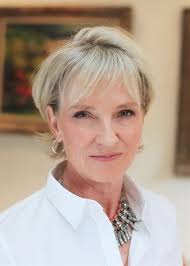Is there a hierarchy of grief?
I recently attended a talk given by Julia Samuel, a grief psychotherapist and author of Grief Works, Stories of Life, Death and Surviving.
She talked about a ‘hierarchy of grief’, in which certain kinds of loss are deemed to be worse than others. For example, when someone dies we mostly assume that those most affected will be the person’s close family – especially spouse and children.

But this can sometimes end up with others who were very close to the deceased not feeling they have the right to feel bereaved or to grieve.
For example, Samuel worked with the brother of a young man who died suddenly. In that family the mother claimed that she was the person most affected by the death. The brother, who had a very close bond with the deceased, took it as his role to support his mother in her grief and downplayed his own feelings.
Even worse, in that particular family, was the that surviving brother was expected to step up and take a more active role in the family business, following the death, which made it even more difficult for him to allow himself to grieve.
That is why siblings are sometimes known as the ‘hidden mourners’, says Samuel.
She added that sometimes we can try to get over grief too quickly and that this can cause its own problems. She worked with a woman, who had received the message from her mother that it was important to ‘forget’ and ‘move on’ from major losses. So, when her mother died this woman tried to do just that.
After being encouraged to bring in something of her mother’s to the counselling session, she brought a scarf. Holding the scarf close to her, she became very emotional as it still smelt of her mother. Her body’s reaction put her in touch with all the grieving feelings she had repressed because she’d thought she ‘should’ be over them.
Counselling can help people who find themselves in a stuck place when dealing with grief, she argues, because when you are on your own, or even in a couple, you find yourself circulating the same old thoughts ‘like a washing machine’. Having a third person present can bring in new ideas and help introduce new strategies.
Samuel points out that , as a society, we still don’t talk much about death. This is despite the growing media coverage of celebrities, such as Gary Barlow or ex-footballer Rio Ferdinand, who have experienced the unexpected death of a close family member.
In a kind of magical thinking we seem to believe, she says, that if we talk about death we will somehow hasten its arrival for ourselves or someone else. “We think that if we deny it, it won’t happen. But then when it does happen it is much worse [for having been denied].”


